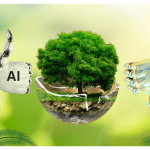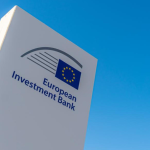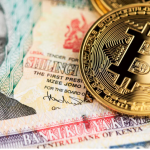Executive Summary
The policies and measures undertaken by the Kenyan government to navigate global economic challenges:
- Climate Change Initiatives:
- Kenya aims for 100% renewable energy by 2030, currently at about 90% of total energy production. Significant investments in geothermal and wind energy, including a KSh 250 million agreement with Eswatini.
- National tree planting initiatives supported by official holidays to combat deforestation.
- Promotion of climate-smart agriculture through conservation practices and improved water management.
- Actively involved in international climate negotiations, which include the 2024 UN Climate Change Conference.
- Investments in disaster risk reduction through early warning systems and community preparedness.
- Economic Measures:
Fiscal Reforms:
- Implemented a 100% income tax waiver for individuals earning below KES 24,000.
- Reduced corporate tax from 30% to 25% to stimulate economic activity.
- Introduced subsidies on essential commodities like maize flour and fertilizer to alleviate living costs.
- Austerity measures to cut public spending by KSh 177 billion due to a revenue shortfall.
- Support for Vulnerable Groups : The government has increased funding for social safety nets, including cash transfers for low-income households affected by inflation and the high cost of living
- Monetary Policy Adjustments : Central Bank interventions to stabilize the Kenyan shilling and manage inflation, for example, reduced interest rates from 12.75% to 12% to lower borrowing costs.
- Investment Facilitation:
- Encouraging investment through streamlined processes and improved transparency.
- Significant government investment in agriculture and infrastructure to boost food production and reduce import dependency.
6. Employment Strategies:
- Transition to a competency-based curriculum (CBC) focusing on practical skills and creativity.
- The government has come up with initiatives to support SMEs and entrepreneurship, including affordable housing projects that generate jobs.
Introduction and Background
Volatility has characterized the global economic scene, fueled by elements including supply chain interruptions, inflation, and climate change. Governments everywhere, including Kenya, have had to take aggressive measures in response to these issues. Because the world economy is interconnected and economic difficulties in one nation can have repercussions in other nations, this topic is crucial. We may better assess the possible effects on the global economy and make well-informed judgments on our own financial planning and investments by being aware of the economic policies and initiatives that governments are doing.
Data and Analysis

Data Source: Wise
Key Findings
- As one of the fiscal measures, the government's expansion of the tax base may affect MGA Group as a business and its employees because it will result in decreased incomes for both.
- Engaging in community social duties that have a long-term influence on climate change, such planting trees, may result in tax waivers for the corporation. This is because the government primarily demands climate resilience.
- Due to the dollar's recent stabilization, foreign exchange markets are less hazardous, making it safe for businesses to invest abroad.
Recommendations
- Reviewing subsidy programs—in this case, fuel and fertilizer subsidies—will improve fiscal policy.
- Invest in green technologies and increase climate resilience.
- Make infrastructure expenditures a top priority, keeping in mind that digital infrastructure contributes to economic expansion.
- Boost the effectiveness of public spending
- Improve the framework for monetary policy by, for example, responsively modifying interest rates.
- Keep promoting global collaboration.
References
Frequently Asked Questions on Kenya . (2024, October 30). IMF. https://www.imf.org/en/Countries/KEN/kenya-qandas
Kenya - Infrastructure . (2024, July 5). International Trade Administration | Trade.gov. https://www.trade.gov/country-commercial-guides/kenya-infrastructure
Kenya at the Economic Frontier: Challenges and Opportunities, by Christine Lagarde, Managing Director, International Monetary Fund . (2015, September 28). IMF. https://www.imf.org/en/News/Articles/2015/09/28/04/53/sp010614
Kenya National Bureau of Statistics. (2020). ADOPTING KENYAN TAX ADMINISTRATION TO COVID-19 CRISIS . https://kra.go.ke/images/publications/Policy-Brief---Adopting-Kenyan-Tax-Administration-to-COVID-19-Crisis.pdf
KENYA’S ECONOMIC OUTLOOK: CHALLENGES AND OPPORTUNITIES . (2024, May 17). Africa24.it. https://africa24.it/en/2024/05/17/kenyas-economic-outlook-challenges-and-opportunities/
Thugge, K. (2024, July 3). Forging ahead: Challenges, opportunities, and lessons from Kenya’s experience. Brookings . https://www.brookings.edu/articles/forging-ahead-challenges-opportunities-and-lessons-from-kenyas-experience/
World Bank Group. (2024). Kenya Economic Update (KEU). In World Bank . https://www.worldbank.org/en/country/kenya/publication/kenya-economic-update-keu









